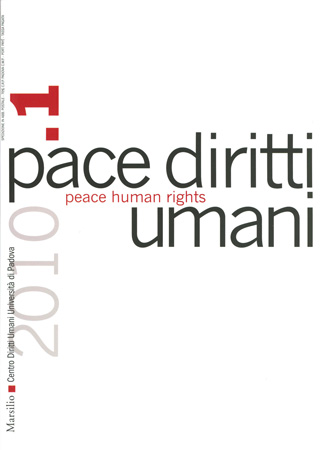Collections

Il diritto all’inclusione nel Trattato di Lisbona
- Contained in
- Pace diritti umani - Peace Human Rights, 1/2010
- Pubblication type
- Articolo / Saggio
- Pages
- 67-74
- Language
- IT
The Right to Inclusion in the Treaty of Lisbon
Marco Ferrero
The Treaty of Lisbon, which came into force on 1 December 2009, affirms a model of «social market economy». The realisation of socalled «flexicurity» has need of social buffers that guarantee the transition between one job and another, and of access to continuous training.
The author analyses the impact of the modifications introduced by the Italian government to the tax-benefit system on the distribution of income and poverty one year after its inception, in comparison with the data on relative poverty in Italy and in Europe.
The partialness of the effects of the devices introduced and the absence in Italy of a full and proper basic income render interesting the justicial perspective of the right to a basic income that derives from the introduction of the Charter of Fundamental Rights within the European Union regulations, through the effect of the Treaty of Lisbon.
Article 6 of the Treaty of Nice that safeguards social rights finally acquires juridical value, and having sanctioned that the minimum level of social treatment attained up to now must not be invalidated means that national judges will be able to cease to apply national regulations when they are in contrast with minimum social rights.
A first example of the potentialities that derive from the inclusion of the Charter of Nice in European Union law is the recent sentence of the Tribunal of Naples of 22 April 2009, which affirmed the opportuneness of recognising in our code a right to citizenship income, a judgment based precisely on the Charter of Nice.

